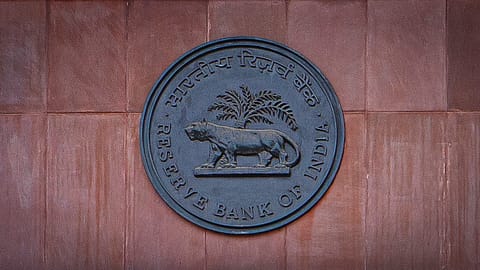India's bank operating environment boosted as economic risks recede: Fitch
Bad bank that was incorporated in July 2021 has not played a meaningful role so far, says Fitch

The operating environment for Indian banks has strengthened as economic risks associated with the Covid-19 pandemic have ebbed, according to Fitch Ratings.
A number of prudential indicators for the sector have also improved compared with pre-pandemic levels, though growing risk appetite in a relatively benign OE highlights the importance of appropriate buffers against potential stress, the credit rating agency says.
Fitch revised its OE mid-point score for Indian banks to ‘bb’ from ‘bb+’ in March 2020, after assessing that the pandemic was likely to worsen the existing operating environment stresses facing the sector.
“India was badly affected by the pandemic, but the associated risks have now receded. Fitch affirmed the sovereign’s rating at ‘BBB-/Stable’ in May and we currently forecast real GDP growth to average 6.4% annually in the three years to March 2026 (FY23-FY25), putting India among the fastest-growing sovereigns in our rated portfolio,” the rating firm says.
This comes days after RBI governor Shaktikanta Das said Indian banks remain healthiest in more than a decade with historically high levels of capital, declining levels of non-performing assets and rising profitability.
The easing of pandemic-related risks has been accompanied by a strengthening of capital buffers. The sector’s average common equity Tier 1 (CET1) capital ratio rose to 13.4% by FY23, from 10.4% in FY18. This partly reflects around $50 billion in cumulative fresh equity provided by the sovereign to state banks since 2015, says Fitch. Earnings buffers also appear significant, with operating profits equivalent to around 2.8% of risk-weighted assets by our estimate in FY23, up from 0.6% in FY20, it says.
India’s operating environment score continues to benefit from the economy’s well-diversified structure, which helps to reduce banks’ exposure to specific sector-focused shocks, says Fitch Ratings. The large size of the economy and India’s favourable demographics should offer banks opportunities to generate profitable business and diversify risk and revenue, it says.
Recommended Stories
“We further expect banks to benefit from the gradual formalisation of the SME sector, through initiatives such as the Goods and Services Tax and rapid digitalisation (including of payment systems), which will improve the prospects for providing services at acceptable levels of risk to this substantial part of the market,” the ratings firm says.
The Reserve Bank of India (RBI) has tightened some norms, building on past measures to strengthen governance, improve board oversight and recognise stress. The banking regulator revised guidelines for compliance functions in banks in September 2020, and revamped audit rules around rotation of auditors in 2021.
Other structural issues continue to hamper the banking operating environment, cautions Fitch. India’s lengthy legal processes remain a major impediment to the implementation of an effective framework for bankruptcy and resolution, and the “bad bank” that was incorporated in July 2021 has not played a meaningful role so far, it says.